|
Books Should Be Free Loyal Books Free Public Domain Audiobooks & eBook Downloads |
|
|
Books Should Be Free Loyal Books Free Public Domain Audiobooks & eBook Downloads |
|
Religion |
|---|
|
Book type:
Sort by:
View by:
|
By: Robert Green Ingersoll (1833-1899) | |
|---|---|
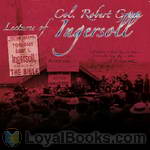 Lectures of Col. R. G. Ingersoll
Lectures of Col. R. G. Ingersoll
Colonel Robert Green Ingersoll (1833–1899) was a Civil War veteran, American political leader and orator during the Golden Age of Freethought, noted for his defense of atheism. This book is the first of two volumes collecting Ingersoll’s speeches. | |
 The Works of Robert G. Ingersoll, Volume VIII. Interviews
The Works of Robert G. Ingersoll, Volume VIII. Interviews
| |
By: Samuel Butler (1835-1902) | |
|---|---|
 God the Known and God the Unknown
God the Known and God the Unknown
| |
 The Fair Haven
The Fair Haven
| |
By: Elliott O’Donnell (1872—1965) | |
|---|---|
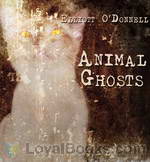 Animal Ghosts
Animal Ghosts
Summary: This is a collection of ghost stories in which the antagonists are various animals. Divided up into chapters of ghost sightings by each group of animals, you will hear of hauntings by dogs, cats, birds, jungle animals, etc. (Summary by Allyson Hester) | |
By: Martin Luther (1483-1546) | |
|---|---|
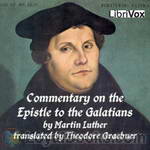 Commentary on St. Paul's Epistle to the Galatians
Commentary on St. Paul's Epistle to the Galatians
Martin Luther strove to give a verse by verse exegesis of the Epistle to the Galatians in the work. The original work, written in Latin in around 1516, was much longer. This translation by Theodore Graebner (1876-1950) strove to produce a copy of the work in a format and with wording much more applicable to the general English-speaking American public. | |
 The Smalcald Articles
The Smalcald Articles
MANUAL OF SURGERY, OXFORD MEDICAL PUBLICATIONSBY ALEXIS THOMSON, F.R.C.S.Ed.PREFACE TO SIXTH EDITION Much has happened since this Manual was last revised, and many surgical lessons have been learned in the hard school of war. Some may yet have to be unlearned, and others have but little bearing on the problems presented to the civilian surgeon. Save in its broadest principles, the surgery of warfare is a thing apart from the general surgery of civil life, and the exhaustive literature now available on every aspect of it makes it unnecessary that it should receive detailed consideration in a manual for students... | |
 Martin Luther's 95 Theses
Martin Luther's 95 Theses
| |
 A Treatise on Good Works
A Treatise on Good Works
| |
 Martin Luther's Large Catechism, translated by Bente and Dau
Martin Luther's Large Catechism, translated by Bente and Dau
| |
 Martin Luther's Small Catechism, translated by R. Smith
Martin Luther's Small Catechism, translated by R. Smith
| |
 The Hymns of Martin Luther Set to their original melodies
The Hymns of Martin Luther Set to their original melodies
| |
 Commentary on Genesis, Vol. II Luther on Sin and the Flood
Commentary on Genesis, Vol. II Luther on Sin and the Flood
| |
 An Open Letter on Translating
An Open Letter on Translating
| |
 The Epistles of St. Peter and St. Jude Preached and Explained
The Epistles of St. Peter and St. Jude Preached and Explained
| |
 Epistle Sermons, Vol. III Trinity Sunday to Advent
Epistle Sermons, Vol. III Trinity Sunday to Advent
| |
By: Thomas Carlyle (1795-1881) | |
|---|---|
 The Life of Friedrich Schiller Comprehending an Examination of His Works
The Life of Friedrich Schiller Comprehending an Examination of His Works
| |
By: Thomas Wentworth Higginson (1823-1911) | |
|---|---|
 The Sympathy of Religions
The Sympathy of Religions
| |
By: Hans Christian Andersen (1805-1875) | |
|---|---|
 True Story of My Life
True Story of My Life
| |
By: Winston Churchill (1871-1947) | |
|---|---|
 The Inside of the Cup
The Inside of the Cup
| |
By: Amy Steedman | |
|---|---|
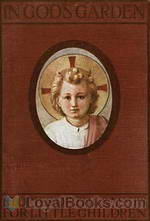 In God's Garden
In God's Garden
“In this book you will not find the stories of all God’s saints. I have gathered a few together, just as one gathers a little posy from a garden full of roses. But the stories I have chosen to tell are those that I hope children will love best to hear.” (excerpt from In God’s Garden by Amy Steedman) | |
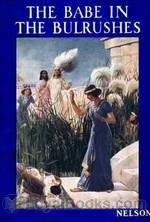 The Babe in the Bulrushes
The Babe in the Bulrushes
| |
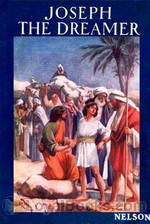 Joseph the Dreamer
Joseph the Dreamer
| |
 David the Shepherd Boy
David the Shepherd Boy
| |
By: Christopher Marlowe (1564-1593) | |
|---|---|
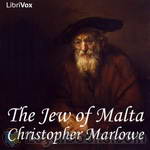 The Jew of Malta
The Jew of Malta
Christopher “Kit” Marlowe (baptised 26 February 1564 – 30 May 1593) was an English dramatist, poet, and translator of the Elizabethan era. The foremost Elizabethan tragedian before William Shakespeare, he is known for his magnificent blank verse, his overreaching protagonists, and his own untimely death. The Jew of Malta (1589) is an original story of religious conflict, intrigue, and revenge, set against a backdrop of the struggle for supremacy between Spain and the Ottoman Empire in the Mediterranean... | |
By: William Walker Atkinson (1862-1932) | |
|---|---|
 Reincarnation and the Law of Karma A Study of the Old-New World-Doctrine of Rebirth, and Spiritual Cause and Effect
Reincarnation and the Law of Karma A Study of the Old-New World-Doctrine of Rebirth, and Spiritual Cause and Effect
| |
By: James Frazer (1854-1941) | |
|---|---|
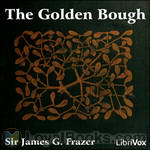 The Golden Bough
The Golden Bough
The Golden Bough: A Study in Magic and Religion is a wide-ranging comparative study of mythology and religion, written by Scottish anthropologist Sir James George Frazer (1854–1941). It offered a modernist approach, discussing religion dispassionately as a cultural phenomenon, rather than from a theological perspective. Although most of its theories have subsequently been exploded (the most famous one being that of the relationship between magic, religion and science), its impact on contemporaneous European literature was substantial... | |
By: H. Rider Haggard (1856-1925) | |
|---|---|
 The Brethren
The Brethren
Set in the days of the Crusaders, this books tells of a young maiden named Rosamund, and her twin cousins. Godwin is the grey eyed thoughtful man, and Wulf is the blue eyed warrior. They are both knights of England and they are both in love with their fair cousin. But the riddle of the story is which does Rosamund love?The adventure begins when Rosamund is taken from England and carried to the East. The plot thickens as the two young knights follow her in hopes of rescuing her from the Muslim leader, Saladin... | |
By: Charles Mackay (1814-1889) | |
|---|---|
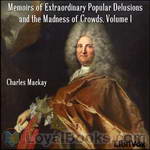 Memoirs of Extraordinary Popular Delusions and the Madness of Crowds
Memoirs of Extraordinary Popular Delusions and the Madness of Crowds
The book chronicles and vilifies its targets in three parts: “National Delusions”, “Peculiar Follies”, and “Philosophical Delusions”.The subjects of Mackay’s debunking include alchemy, beards (influence of politics and religion on), witch-hunts, crusades and duels. Present day writers on economics, such as Andrew Tobias, laud the three chapters on economic bubbles. | |
By: Brontë sisters | |
|---|---|
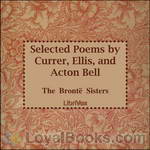 Selected Poems by Currer, Ellis and Acton Bell
Selected Poems by Currer, Ellis and Acton Bell
Poems by Currer, Ellis and Acton Bell was a volume of poetry published jointly by the three Bronte sisters, Charlotte, Emily and Anne in 1846, and their first work to ever go in print. To evade contemporary prejudice against female writers, the Bronte sisters adopted androgynous first names. Marked by profound sentiments, gravity and melodious harmony, the poems are strewn on the fields of soulful love, rueful reminiscence and the immortal yearnings of a Christian soul, and represent a fragrant assemblage of noetic flowers from the glebes of olden England... | |
By: Jeanne Marie Bouvier de la Motte Guyon | |
|---|---|
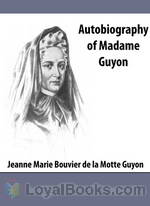 Autobiography of Madame Guyon
Autobiography of Madame Guyon
Jeanne-Marie Bouvier de la Motte-Guyon (commonly known as Madame Guyon) (April 13, 1648 – June 9, 1717) was a French mystic and one of the key advocates of Quietism. Quietism was considered heretical by the Roman Catholic Church, and she was imprisoned from 1695 to 1703 after publishing a book on the topic, A Short and Easy Method of Prayer. This translation is by Thomas Taylor Allen was first published in 1897. Allen’s dates are unknown. | |
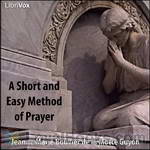 A Short and Easy Method of Prayer
A Short and Easy Method of Prayer
Originally published in 1685, Madame Guyon’s A Short and Easy Method of Prayer is considered a classic of Christian mysticism, influencing great writers and speakers such as John Wesley and Charles Spurgeon. In it, Madame Guyon carefully and briefly sets out her ‘unmethodical method’ by which any and all can commune with God at any time and under any circumstances. | |
 Spiritual Torrents
Spiritual Torrents
| |
 Letters of Madam Guyon
Letters of Madam Guyon
| |
By: Oliver Optic (1822-1897) | |
|---|---|
 Field and Forest The Fortunes of a Farmer
Field and Forest The Fortunes of a Farmer
| |
 Desk and Debit or, The Catastrophes of a Clerk
Desk and Debit or, The Catastrophes of a Clerk
| |
 Little By Little or, The Cruise of the Flyaway
Little By Little or, The Cruise of the Flyaway
| |
By: Bernard Shaw (1856-1950) | |
|---|---|
 Bernard Shaw's Preface to Androcles and the Lion
Bernard Shaw's Preface to Androcles and the Lion
| |
By: George Berkeley (1685-1783) | |
|---|---|
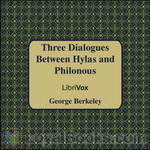 Three Dialogues Between Hylas and Philonous
Three Dialogues Between Hylas and Philonous
Berkeley uses Hylas as his primary contemporary philosophical adversary, John Locke. A Hylas is featured in Greek mythology and the name Hylas is derived from an ancient Greek word for “matter” which Hylas argues for in the dialogues. Philonous translates as “lover of mind.” In The First Dialogue, Hylas expresses his disdain for skepticism, adding that he has heard Philonous to have “maintained the most extravagant opinion… namely, that there is no such thing as material substance in the world.” Philonous argues that it is actually Hylas who is the skeptic and that he can prove it. Thus, a philosophical battle of wit begins. | |
By: Desiderius Erasmus (1466/69-1536) | |
|---|---|
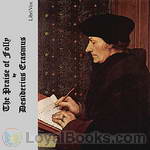 The Praise of Folly
The Praise of Folly
The Praise of Folly (Greek title: Morias Enkomion (Μωρίας Εγκώμιον), Latin: Stultitiae Laus, sometimes translated as In Praise of Folly, Dutch title: Lof der Zotheid) is a satirical essay written in 1509 by Desiderius Erasmus of Rotterdam (1466/69-1536). It is considered one of the most influential works of literature in Western civilization and one of the catalysts of the Protestant Reformation.It starts off with a satirical learned encomium after the manner of the Greek satirist... | |
By: Saint Therese (1873-1897) | |
|---|---|
 The Story of a Soul
The Story of a Soul
Marie Francoise Therese Martin, affectionately known as ‘The Little Flower’, was born on January 2, 1873, in Alencon, France to Louis Martin and Zelie Guerin. She was the youngest and one of five surviving sisters of the nine Martin children. When Therese was 3, her mother died. Louis Martin moved his family to Lisieux to be closer to his late wife’s brother and his family. It was there that Therese’s sister, Pauline, entered the Carmel at Lisieux on October 2, 1882. Therese at that time also heard the Divine Call to religious life... | |
By: George Alfred Henty (1832-1902) | |
|---|---|
 A Jacobite Exile Being the Adventures of a Young Englishman in the Service of Charles the Twelfth of Sweden
A Jacobite Exile Being the Adventures of a Young Englishman in the Service of Charles the Twelfth of Sweden
| |
By: Théodule Ribot (1839-1916) | |
|---|---|
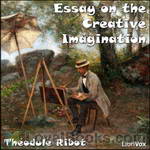 Essay on the Creative Imagination
Essay on the Creative Imagination
“It is quite generally recognized that psychology has remained in the semi-mythological, semi-scholastic period longer than most attempts at scientific formulization. For a long time it has been the “spook science” per se, and the imagination, now analyzed by M. Ribot in such a masterly manner, has been one of the most persistent, apparently real, though very indefinite, of psychological spooks. Whereas people have been accustomed to speak of the imagination as an entity sui generis, as a... | |
By: Russell Herman Conwell (1843-1925) | |
|---|---|
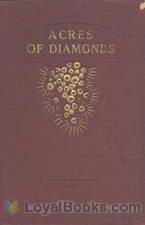 Acres of Diamonds
Acres of Diamonds
Text of famous inspirational lecture and biography of Russell Conwell, a Baptist minister and Temple University Founder | |
By: Lafcadio Hearn (1850-1904) | |
|---|---|
 Japan: An Attempt at Interpretation
Japan: An Attempt at Interpretation
Greece-born Lafcadio Hearn (1850 - 1904) spent decades of his life in Japan, even marrying a Japanese woman, thus becoming a Japanese citizen by the name of Koizumi Yakumo (小泉 八雲). He wrote many books on Japan, especially about its folklore. In this posthumously published book, he takes a closer look at Japan's religious history: How it developed from ancient beliefs into Shintoism, resisted suppression attempts by both Buddhism and Christianity and how – despite efforts to westernise Japan during the era known as Meiji Restoration – it remained the basis for Japanese society... | |
By: Martha Finley (1828-1909) | |
|---|---|
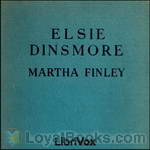 Elsie Dinsmore
Elsie Dinsmore
Elsie, young and motherless, has never met her father and is being raised by her father’s family. As a strong Christian, she has many trials within the unbelieving family. Her greatest comforts are her faith and her mammy, Chloe. Finally, her father returns home. Will her father love her? Will her father learn to love Jesus? | |
 Holidays at Roselands
Holidays at Roselands
This is the second book of the much loved Elsie Dinsmore series and starts where the first book left off. Elsie is still recuperating from her weakness, with her kind and indulgent father by her side.The story revolves around how a strong bond of love and understanding takes root between the father and daughter, as they holiday at Roselands, and visit exciting places, with some of our favorite friends from the first book, Mr. Travilla, Adelaide, Chloe, Lora and the others. | |
 Elsie's Girlhood
Elsie's Girlhood
In the third book of Martha Finley's much-loved Elsie Dinsmore series, Elsie's life is traced from the tender age of 12 or 13 to the mature age of 21. Her life is not all sunshine and roses, but she is secure in the love of the Lord and her family. | |
 Christmas with Grandma Elsie
Christmas with Grandma Elsie
| |
 Elsie's Motherhood
Elsie's Motherhood
After the Civil War, Elsie and her family return to their home in the South, dealing with the upheaval that the Reconstruction Era brought during the years after the war. | |
 Elsie's Children
Elsie's Children
This book continues the delightful "Elsie Dinsmore" series. Elsie's children, introduced in the previous volume, live life, grow up, and encounter various problems of their own. Additional Proof Listeners: AlaynaMay & Rachel. | |
 Elsie at Home
Elsie at Home
| |
 Elsie at the World's Fair
Elsie at the World's Fair
| |
 Elsie's Vacation and After Events
Elsie's Vacation and After Events
| |
 Elsie's Kith and Kin
Elsie's Kith and Kin
| |
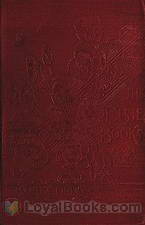 Elsie at Viamede
Elsie at Viamede
| |
 Elsie in the South
Elsie in the South
| |
 Elsie on the Hudson
Elsie on the Hudson
| |
 The Two Elsies A Sequel to Elsie at Nantucket
The Two Elsies A Sequel to Elsie at Nantucket
| |
By: Charles Foster Kent | |
|---|---|
 The Making of a Nation: The Beginnings of Israel's History
The Making of a Nation: The Beginnings of Israel's History
Charles Foster Kent was one of the premier scholars in Jewish Studies at the turn of the century. He was particularly well-known for his comparisons of early Christianity to its Jewish roots. He also wrote several distinguished histories of Israel, the Jewish people, Torah studies, and the development of oral Torah. | |
By: Padraic Colum (1881-1972) | |
|---|---|
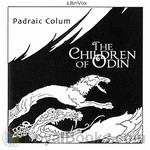 The Children of Odin
The Children of Odin
Master storyteller Padraic Colum's rich, musical voice captures all the magic and majesty of the Norse sagas in his retellings of the adventures of the gods and goddesses who lived in the Northern paradise of Asgard before the dawn of history. Here are the matchless tales of All-Father Odin, who crosses the Rainbow Bridge to walk among men in Midgard and sacrifices his right eye to drink from the Well of Wisdom; of Thor, whose mighty hammer defends Asgard; of Loki, whose mischievous cunning leads him to treachery against the gods; of giants, dragons, dwarfs and Valkyries; and of the terrible last battle that destroyed their world. | |
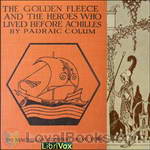 The Golden Fleece and the Heroes Who Lived Before Achilles
The Golden Fleece and the Heroes Who Lived Before Achilles
This is Irish folklorist Padraic Colum's masterful retelling of many Greek myths, focusing on Jason and the Argonauts' quest to find the Golden Fleece. He also includes the stories of Atalanta, Heracles, Perseus, Theseus, and others. | |
By: James E. Talmage | |
|---|---|
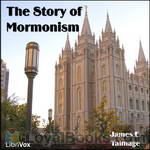 The Story of Mormonism
The Story of Mormonism
A few years before James E. Talmage was called to serve as an apostle for the Church of Jesus Christ of Latter-day Saints (also known as the "Mormon" church), he gave a series of lectures at universities such as the University of Michigan and Cornell, describing the history of the Church. These lectures were later compiled and published as 'The Story of "Mormonism."' It is a concise, yet informative summary for all interested in learning the history and beliefs of the "Mormon" church. (Summary by Nathan Markham) | |
By: Robert Michael Ballantyne (1825-1894) | |
|---|---|
 The Red Eric
The Red Eric
| |
 The Prairie Chief
The Prairie Chief
| |
 Rivers of Ice
Rivers of Ice
| |
 The Floating Light of the Goodwin Sands
The Floating Light of the Goodwin Sands
| |
 The Thorogood Family
The Thorogood Family
| |
 Red Rooney The Last of the Crew
Red Rooney The Last of the Crew
| |
 The Crew of the Water Wagtail
The Crew of the Water Wagtail
| |
 Fighting the Flames
Fighting the Flames
| |
 Hunted and Harried
Hunted and Harried
| |
 Twice Bought
Twice Bought
This story is set in the gold fields of Oregon, where Tom Brixton, and his best friend, Fred Westly, are digging gold to try to “make their pile”. Before leaving England, the steady and God-fearing Fred had promised Tom's mother that he would do his best to take care of his friend, but in spite of all his efforts, Tom had fallen in with bad companions and taken to gambling. He was convinced that he could make his fortune quicker by attempting to increase it at the dice or card table, and all his friend's attempts to make him see his errors were unavailing... | |